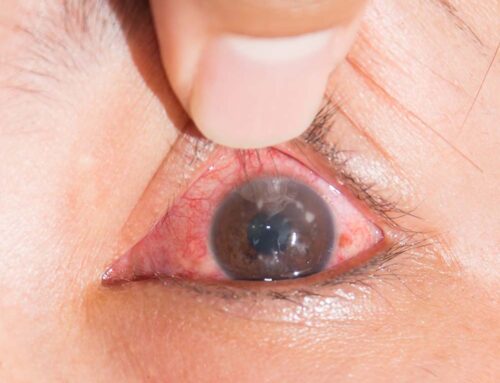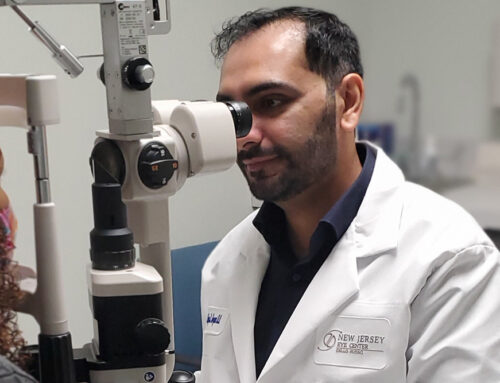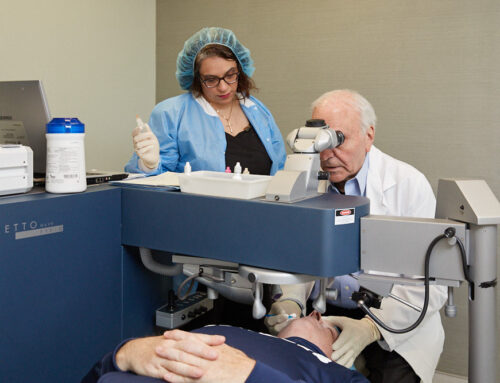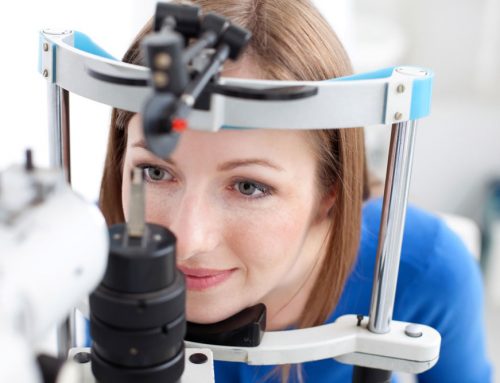
There are many reasons why you may begin to experience blurred vision. Some of them are serious medical conditions, while others may not be a cause for concern. Regardless, if you have consistent blurred vision, it is wise to consult a medical professional who can assess your condition.
Getting a prompt eye exam means that you can begin treatment for any problems as soon as possible. It also means you can avoid serious complications, like permanent eye injury or even blindness.
Another important thing to know about blurred vision is that it does not always mean there is nothing wrong with your eyes. Sometimes, it can be a sign of a much more serious illness such as a neurological condition.
Getting a prompt medical assessment can rule out the causes of blurred vision. If your optometrist determines that there is nothing wrong with your eyes, you should make an appointment with your general practitioner. They can run tests to see if your blurred vision has a potentially serious cause that goes beyond your optical health.
So what are some of the most common causes of blurred vision, and how do optometrists treat them?
Myopia or hyperopia
In simple terms, these mean nothing more than nearsightedness or farsightedness. Even if you have worn glasses or contact lenses for years, there is always a chance your prescription could change.
This will cause blurred vision as one or both of your eyes struggle to adjust to your needs. During this time, you may also experience mild headaches, eye strain, or even nausea. This is because your eyes are struggling to adjust.
Thankfully, there are few serious long-term health problems associated with myopia and hyperopia. Correcting these problems is as simple as going in for an eye exam and having your prescription updated.
If you have never needed vision correction before, your optometrist will help you decide what kind is the best choice. Some people prefer contact lenses to eyeglasses. Others do not like the process of inserting lenses into their eyes.
There are many different types of specialty glasses available as well for different vision needs. If you are both near- and farsighted, for example, you can opt for bifocals. These allow you to adjust your eyes’ focus naturally without additional eye strain.
Astigmatism
Astigmatism is an eye condition that is usually the result of an unusually shaped cornea. It can cause issues with the way light is refracted through the eye. This frequently causes blurred vision, especially when you are tired or have strained your eyes.
Eye strain can happen as the result of focusing your eyes too hard or for too long. It can also occur if you have had too much blue light exposure. Blue light is found in natural outdoor light, but most of our exposure these days comes from digital screens. People whose jobs require them to sit at computers for long hours may be likely to experience eye strain and fatigue.
If you have astigmatism, however, you are probably more likely to have symptoms like these. Having an irregular cornea makes it easy for your eyes to become tired, leading to symptoms like migraines, dry eye, and blurred vision.
Astigmatism is usually treated with corrective lenses. However, if blurred vision or other symptoms of astigmatism are seriously impeding your daily activities, refractive surgery is an option.
Chronic dry eye
Some people are also prone to chronic dry eye. This means that their tear ducts do not produce significant lubrication. Chronic dry eye is not serious, but it can be uncomfortable. It can also cause vision problems, including blurred vision.
Most of the time, chronic dry eye can be treated with artificial tears. These are simple eye drops that you apply whenever you start feeling uncomfortable. However, if your chronic dry eye is bothering you constantly or you experience frequent blurred vision, your optometrist may give you prescription eye drops. These will help your eyes produce more moisture and function normally.
Migraines with secondary blurred vision
There is no doubt that migraines are seriously painful and can become debilitating for those who experience them frequently. People who have never had a migraine might not understand how widespread their effect is. They are more than just headaches. Migraines can also cause a huge range of symptoms from nausea to vision problems, including blurred vision.
This can be disorienting and upsetting, especially if you are already in severe pain. Unfortunately, there is really no way to treat the blurred vision that often accompanies migraines. Instead, your doctor will help you find out why you are experiencing severe headaches and look for ways to correct them.
With any luck, when your migraines are a thing of the past, your blurred vision will be as well.
Cataracts
The symptoms of cataracts are more often described as causing “milky” vision, rather than blurred vision. However, it is also common for people to use both phrases. When they first start out, cataracts may cause mild blurred vision before growing worse.
Cataracts are extremely common and are the most common cause of blindness. They occur when the lens of the eye — located behind the iris — becomes clouded. This cloudiness is the result of protein gathering together inside the lens.
There are different types of cataracts. Depending on what kind you have, you may experience flashing lights, generally diminished sight, or even temporarily improved sight. However, all cataracts eventually progress into the total or partial loss of vision if left untreated.
There are several types of treatments for cataracts. Some are as simple as adjusting your eyewear or using other optical aids. However, cataract surgery is also an option. Nowadays, it is considered routine, with millions of procedures performed every year. These surgeries are by and large highly successful.
Thankfully, excellent advances in optometry like those at the New Jersey Eye Center in Bergenfield NJ have given people options for treating their vision issues. If you experience blurred vision, contact a medical professional to find out what choices are available to you.







